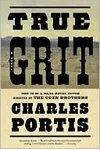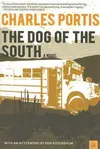Picture an Arkansas storyteller who spun tales of grit and wit, bringing the Wild West to life with a sly grin—meet Charles Portis! Best known for his iconic novel True Grit, Portis crafted stories that blended deadpan humor, vivid characters, and a sharp take on American culture. His work, though often under the radar, has left an indelible mark on Western fiction and beyond.
Born in 1933 in El Dorado, Arkansas, Portis lived a life as colorful as his novels. From his days as a Marine to his stint as a globe-trotting journalist, he soaked up the quirks of human nature, which later fueled his unique storytelling. Let’s dive into the world of this reclusive genius whose words still pack a punch.
The Making of Charles Portis
Charles McColl Portis grew up in rural Arkansas, surrounded by family tales and comic books, with a dash of Western films at the local cinema. After serving as a sergeant in the Korean War, he studied journalism at the University of Arkansas, graduating in 1958. His early career took him from the Arkansas Gazette to the New York Herald Tribune, where he covered civil rights stories and served as London bureau chief. But in 1964, Portis ditched the newsroom for a fishing shack in Arkansas, trading deadlines for fiction. That bold move birthed his first novel, Norwood, and set the stage for his literary legacy.
Charles Portis’s Unforgettable Stories
Portis’s novels are a masterclass in blending humor, adventure, and satire. His debut, Norwood (1966), follows a naive ex-Marine on a cross-country quest to recover a $70 debt, meeting oddballs like a college-educated chicken along the way. Critics praised its quirky characters and sharp dialogue, though some found the plot light. Then came True Grit (1968), his masterpiece. Narrated by the fierce 14-year-old Mattie Ross, it’s a tale of vengeance in 1870s Arkansas, with Deputy Marshal Rooster Cogburn as her gritty sidekick. Its blend of Western tropes and dry wit earned comparisons to Mark Twain and made it a bestseller, serialized in the Saturday Evening Post.
Portis didn’t stop there. The Dog of the South (1979) tracks Ray Midge’s wild chase for his wife and car, introducing the unforgettable con man Dr. Reo Symes. Masters of Atlantis (1985) pokes fun at secret societies, while Gringos (1991) follows an expatriate’s search for a lost city in Mexico. Each novel showcases Portis’s knack for picaresque plots, eccentric characters, and a voice that captures the restless American spirit.
Why Charles Portis Matters
Portis’s impact on American literature lies in his ability to elevate the Western genre with humor and heart. True Grit inspired two acclaimed films (1969 and 2010), with John Wayne’s Oscar-winning role in the first cementing its cultural status. Yet, Portis’s lesser-known works have a cult following among writers like Donna Tartt and Roy Blount Jr., who admire his originality. His reclusive nature—he shunned interviews and fame—only added to his mystique, making him a “writer’s writer.” In 2023, the Library of America honored him with a collected works edition, proving his stories resonate decades later.
About Charles Portis
- Born: December 28, 1933, El Dorado, Arkansas
- Key Works: Norwood (1966), True Grit (1968), The Dog of the South (1979), Masters of Atlantis (1985), Gringos (1991)
- Awards: Oxford American’s Lifetime Achievement in Southern Literature (2010)
- Died: February 17, 2020, Little Rock, Arkansas
Ready to saddle up with a literary legend? Grab True Grit or The Dog of the South and dive into Charles Portis’s hilarious, heartfelt world of Western adventure!





